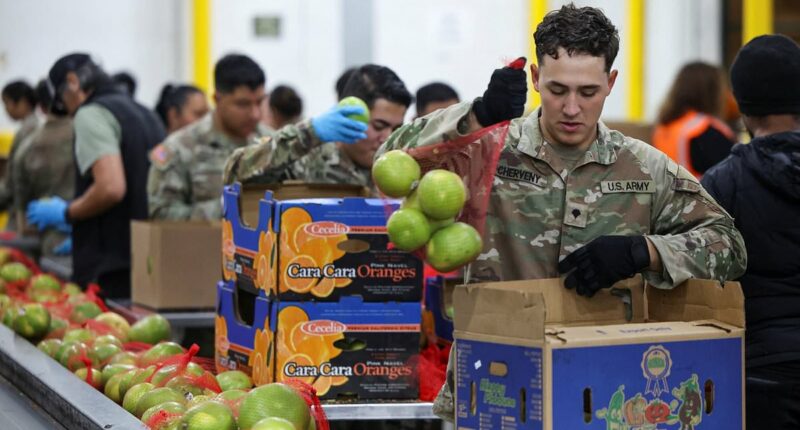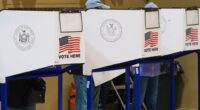Share this @internewscast.com

The ongoing government shutdown, now stretching into its fourth week, poses a pressing threat to millions of Americans who rely on government assistance for essential food supplies. This looming crisis is set to hit home for approximately 42 million individuals dependent on the Supplemental Nutrition Assistance Program (SNAP), as its funding is set to lapse on Saturday, November 1. SNAP, crucial for many families, provides an average monthly benefit of $187 per person. However, with no resolution to the shutdown in sight, these funds are at risk of not being distributed.

Equally concerning is the potential impact on the Special Supplemental Nutrition Program for Women, Infants, and Children (WIC), which could feel the strain as early as next week. WIC offers targeted nutritional support to pregnant women, new mothers, and young children. In a bid to temporarily sustain the program, the Trump administration redirected $300 million from tariff revenues, propping up WIC after its originally allocated funds were nearly depleted in October.

As political gridlock persists in Washington D.C., threatening to extend the shutdown into record-breaking territory, some governors are taking proactive steps to alleviate the burden on their constituents. Notably, governors from Virginia, Vermont, and Louisiana have committed to supplementing food assistance for their residents, even as the federal program remains stalled, although specific plans at the state level are yet to be detailed, according to the Associated Press. Meanwhile, Democratic governors Gavin Newsom of California and Kathy Hochul of New York are bolstering food bank resources to address the growing needs in their states.
Hochul noted Monday that she planned to fast tracking $30 million in emergency food assistance, and Newsom is making $80 million available, as well as sending the National Guard to help run food banks, also some locations have rejected the troops’ help. The Trump Administration has noted that states that choose to spend money on their food programs will not be reimbursed for their actions. While pain from the federal shutdown may soon be felt across the country in a widespread manner, it is also hitting in Washington, DC.

Staffers in the US Senate have already missed a paycheck, and House staffers were notified Wednesday that they will also miss their next salary payments at the end of the month. The shutdown stems from a partisan dispute over health care subsidies for the Affordable Care Act marketplaces, which serve approximately 24 million Americans who don’t have employer-based insurance or public coverage like Medicaid.

Democrats fear that any budget agreement could be undone through rescissions, a rarely-used presidential power that Trump revived earlier this year to codify spending cuts recommended by the Department of Government Efficiency. The Senate has held repeated votes on a House-passed continuing resolution, with most Democrats voting against it and Republicans supporting it. But the Senate needs 60 votes to break the stalemate and has not been able to achieve that number.

Meanwhile, the Republican-led House has remained in recess throughout the entire shutdown and has not held any votes, though Speaker Mike Johnson said the chamber was on 24-hour notice to return if needed. The president is currently overseas on a diplomatic trip to Asia, further complicating negotiations as the crisis meddles along at home.











